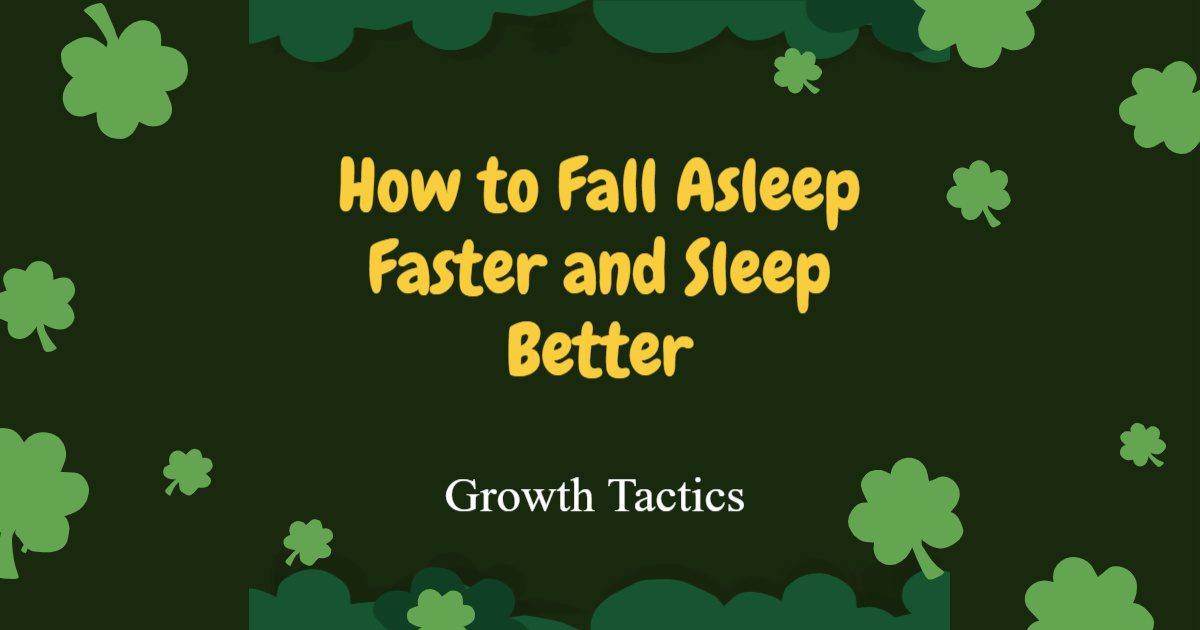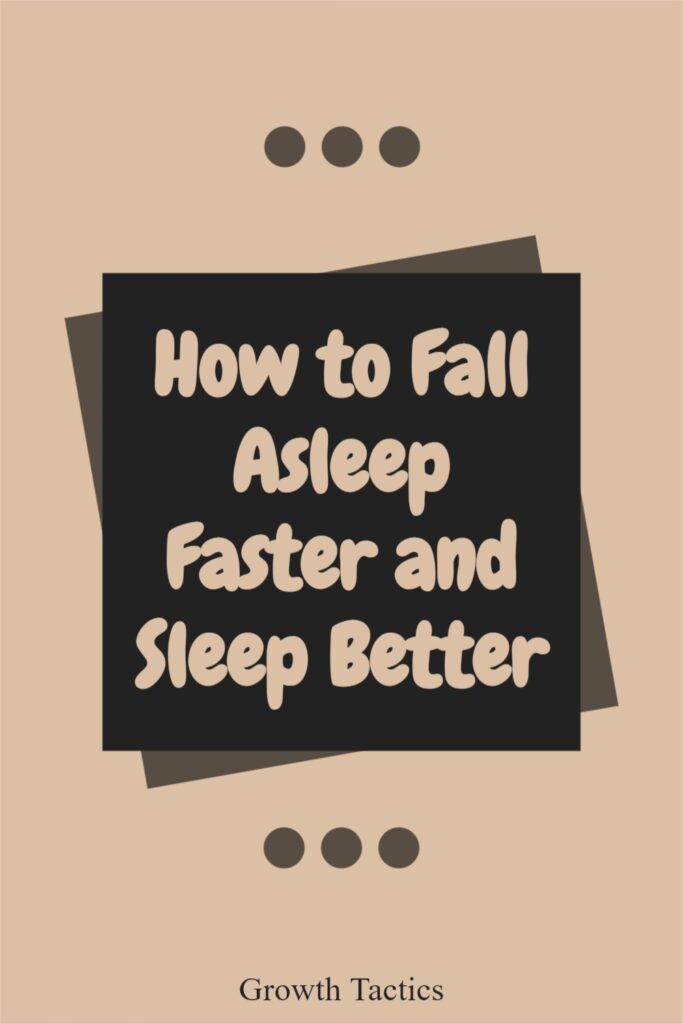A good night’s sleep may sound like a luxury, but it can have a significant impact on your health and mental well-being. In this article, you will learn some best tips for getting better sleep so you can be your best you.
How Much Sleep Is Enough
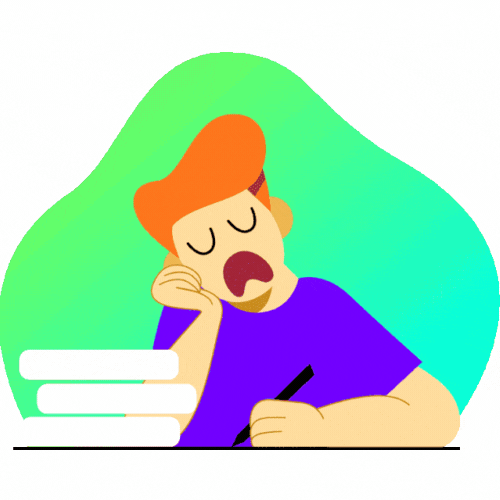
Most adults need seven to nine hours of sleep each night, but many don’t get it. According to the Centers for Disease Control and Prevention, about 70 million U.S. adults sleep less than seven hours a night. About 50% report experiencing symptoms of insomnia. The consequences can be serious: Insufficient sleep can lead to weight gain and obesity, diabetes, heart disease, and depression.
Benefits Of A Good Night Of Sleep
The benefits of getting a good night’s sleep are plentiful. Including reduced stress, decreased risk of health issues, improved brain function, and better mood just to name a few.
Reduced Stress
Sleep allows your mind to relax, so you’ll be less stressed out during the day. It helps reduce the effects of stress on your mind and body. This is because it helps restore chemicals like cortisol, epinephrine, and norepinephrine. Which helps control physiological responses to stress, including heart rate and blood pressure. It can also help you regain a sense of control over your life after facing stressful situations during the day.
Decreased Risk of Health Issues
If you’re not getting enough sleep, you’re putting yourself at risk for serious health problems. Some of the most common illnesses that a lack of sleep cause or exacerbate, include:
Heart disease – Studies show that consistently sleeping five hours or less each night increases the chance of heart attack and stroke.
Sleep apnea – Sleep apnea is a condition in which you stop breathing for short periods while you sleep. It’s caused by the muscles relaxing during sleep, which block your airways. If left untreated, it can increase your risk of high blood pressure, heart disease, and stroke, and it may cause memory problems and mood disorders.
Depression – Sleep deprivation is also linked to depression, obesity, and early-onset dementia.
Improved Brain Function
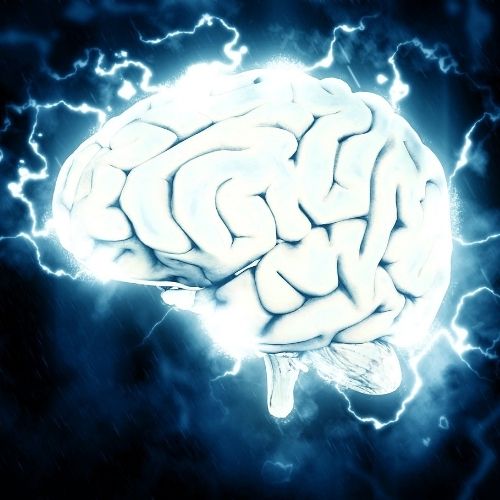
Have you ever gone to bed with a problem, only to wake up with a new solution? I have many times. A new study from researchers at Korea University found that sleep helps the brain generate new ideas. This finding suggests that a lack of sleep impairs our ability to be creative. Causing us to become fixated on less creative solutions to problems we’re facing.
A good night’s sleep not only improves your ability to problem-solve, but also improves memory, concentration, and your ability to learn new things. Sleep helps your brain to work properly by giving it time to rest and repair itself.
Better Mood
Have you ever pulled an all-nighter? If you have, I bet you weren’t in the greatest mood the next day. You don’t even have to be up all night for it to affect your mood. If you don’t get a good night’s sleep, it can lead to irritability.
Does this all sound too good to be true? Keep reading and follow these tips.
Tips for Getting Better Sleep
Getting a good night’s sleep should not be a luxury, it’s a necessity if you want to perform at your best. If you aren’t getting your seven to nine hours or you wake up feeling tired, don’t worry we are going to discuss some things you can do to feel more rested.
Have a Sleep Routine
A good night’s sleep is essential for your overall health and well-being. One of the keys to achieving quality sleep is to establish a consistent sleep routine. This routine should include the same place to sleep, the same time of day, and the same pre-bed habits every night.
Find Your Perfect Bedtime
Going to bed at the same time each night helps regulate your body’s internal clock. Choose a time when you feel naturally tired and can easily fall asleep. This consistency will make it easier for you to drift off each night.
Create Your Sleep Ritual
Your pre-bed routine is crucial in preparing your body for a restful night. Develop a sleep ritual that you can follow every night. This may include activities such as taking a warm shower or bath, practicing gentle yoga, reading a book, or listening to calming music.
By following these simple steps and creating a consistent sleep routine, you’ll be on your way to better sleep and improved overall health. Sweet dreams!
4-7-8 Breathing Method
The 4-7-8 Breathing Method is a unique technique created by Dr. Andrew Weil. It can help you fall asleep faster and improve your quality of sleep. The steps are simple:
1. Place the tip of your tongue against the ridge of tissue just behind your upper front teeth. Keep it there through the entire exercise. You will be exhaling through your mouth around your tongue; try pursing your lips slightly if this seems awkward.
2. Exhale completely through your mouth, making a whoosh sound.
3. Close your mouth and inhale quietly through your nose to a mental count of four.
4. Hold your breath for a count of seven.
5. Exhale completely through your mouth, making a whoosh sound to a count of eight.
6. This is one breath. Now inhale again and repeat the cycle three more times for a total of four breaths.
7. Continue this cycle for up to ten minutes or until you feel relaxed enough to sleep. When you reach the point when you can’t think of anything else but the breathing exercise, you may stop if you wish. Or continue with another 10 breaths or so to increase the sense of relaxation further. It is important to remain in bed awake after completing the exercise.
Cool Temperature
A cool bedroom is key to helping you fall asleep faster and sleep better. In fact, the National Sleep Foundation recommends keeping the temperature in your bedroom between 60 and 67 degrees Fahrenheit.
The human body naturally begins to feel sleepy when its core temperature drops. During sleep, your body’s core temperature will naturally drop a few degrees. This is why most people find themselves feeling tired after a long day of lounging around in a cool room.
An ideal sleeping environment is slightly cooler than the rest of the house. This allows for that slight dip in core temperature when you climb into bed at night. You can also try cooling down your bedroom by using a fan or air conditioner.
Get a Peaceful Sleep with White Noise
If you’re struggling to fall asleep due to outside noise distractions, a white noise machine or app may be just what you need to achieve a peaceful night’s sleep.
What is White Noise?
White noise is a type of sound that contains all the frequencies audible to the human ear, played at an equal intensity. It can help mask unwanted sounds that may disturb your sleep, such as traffic or neighbors.
How Does it Work?
White noise works by creating a constant background sound that covers up sudden noises that might otherwise wake you up or disrupt your sleep. It can help you relax and fall asleep more quickly, as well as stay asleep longer.
Types of White Noise
There are many types of white noise sounds available, including:
- Natural sounds like rain, waves, or wind
- Electronic sounds like static or humming
- Ambient sounds like traffic or city noise
How to Use White Noise
Using white noise to help you sleep is easy. You can download a white noise app on your smartphone or tablet and play it through headphones or a Bluetooth speaker. Alternatively, you can purchase a white noise machine that is specifically designed to produce a range of white noise sounds.
Benefits of White Noise
- Masks outside noise distractions
- Helps you fall asleep faster
- Helps you stay asleep longer
- Creates a peaceful sleep environment
- Can promote relaxation and reduce stress
In conclusion, using white noise can be an effective and simple solution for those who struggle with outside noise distractions affecting their sleep. Consider incorporating white noise into your sleep environment to experience the benefits of a more peaceful and restful night’s sleep.
Avoid Daytime Naps
Daytime naps may seem like a good way to feel refreshed, but they can make it more difficult to fall asleep at nighttime. During the day, your circadian rhythm is trying to keep you alert, so you can perform the tasks required of you during the day.
Also, some people are sensitive to sunlight and even some indoor light. Taking a nap in an artificially lit room, might not provide enough stimulus to tell your body that it’s time to wake up.
Finally, there’s another reason why taking a daytime nap can make falling asleep at night difficult: it increases fatigue! There’s something called “sleep inertia” which occurs right after you wake up from sleep. This feeling of grogginess or disorientation makes it harder to fall back asleep. So if you feel groggy after waking up from a daytime nap, it can cause more trouble going back to sleep at night.
How to Sleep Better Without Watching the Clock
Watching the clock while trying to fall asleep is a common habit that many people have. Unfortunately, this habit can create anxiety and make it harder to fall asleep.
Why Clock Watching is Bad for Your Sleep
When you watch the clock, you become fixated on the time. This can create anxiety and stress, which can make it harder to fall asleep. Additionally, checking the clock frequently can disrupt your sleep cycles, which can lead to poor quality sleep.
Tips for Breaking the Habit
If you’re struggling with clock-watching, here are some tips to help you break the habit:
- Turn the clock away from you or cover it up. This will help you avoid the temptation to check the time.
- Practice relaxation techniques. Deep breathing, meditation, or visualization can help you relax and fall asleep more easily.
- Create a relaxing bedtime routine. This could include taking a warm bath, reading a book, or listening to soothing music.
- Use a white noise machine or app to drown out any outside noises that may be keeping you up.
- Get plenty of exercise during the day. Regular exercise can help you sleep better at night.
- Avoid caffeine and alcohol before bedtime. Both can disrupt your sleep patterns and make it harder to fall asleep.
Benefits of Not Watching the Clock
By breaking the habit of clock-watching, you can experience a number of benefits:
- Reduced anxiety and stress, which can help you fall asleep more easily.
- Improved sleep quality and duration, which can help you feel more rested and energized during the day.
- More relaxation before bed, which can help you unwind and prepare for sleep.
In conclusion, if you’re having trouble sleeping, try breaking the habit of clock-watching. By turning the clock away from you and practicing relaxation techniques, you can reduce anxiety and improve the quality of your sleep.
Avoid Electronics

If you want to fall asleep faster and sleep better, you need to do two things: get rid of the lights and avoid electronics.
The blue light emitted from electronic devices like cell phones, laptops and TVs interferes with the production of melatonin (your body’s sleep hormone). The less melatonin you produce, the harder it is for you to fall asleep.
If you’re having trouble getting to sleep, try turning off your TV and phone at least 1 hour before bedtime. If you must use your computer, consider using a program such as Flux. Flux removes much of the blue light from your screen when the sun goes down.
Sleep in a Dark Room
Sleep experts recommend a dark bedroom, complete darkness, for optimal sleep. If you can’t achieve that, minimize light as much as possible. When you’re ready to go to bed, turn off the lights and any electronics that might emit light. Invest in room-darkening shades if you need them. If your room is still too bright, consider using black-out curtains or an eye mask to block out even more light.
Switching off all your lights also helps your body produce melatonin, the hormone that signals your brain that it’s time for sleep.
Watch What You Eat Before Bed
What you eat before bed really does affect your sleep. The best foods to eat before bed, according to experts, are foods that digest slowly and promote relaxation.
This includes bananas, whole-grain bread, yogurt, whole-wheat pasta, brown rice, and oatmeal. Foods that are high in sugar can cause a sudden burst of energy right before bed. Which is not good for your ability to unwind. If you have trouble sleeping at night, you should avoid eating a large meal within two to three hours of going to bed.
Exercise During The Day

Exercising during the day has a positive effect on sleep in several ways. It helps to stimulate hormone production, which helps to fight against the build-up of cortisol levels. If you’re not exercising, you’re more likely to have high levels of cortisol in your body during the day. Cortisol is a stress hormone that can cause your body to produce adrenaline, which can interrupt your sleep cycle.
Exercising during the day also helps wake you up. It boosts your energy level during the day. So that when it’s time for bed, you’ll feel ready to fall asleep quickly without having to resort to using sleeping pills.
Soak Up the Sun for Better Sleep
Natural sunlight exposure plays a significant role in regulating your sleep-wake cycle. Spending time outdoors during the day can improve your sleep quality at night.
Boost Your Body’s Sleep Rhythm
Your body’s internal clock, or circadian rhythm, relies on natural light to function properly. By stepping outside and getting some sunlight, you’ll help your body stay aligned with its natural sleep-wake cycle.
Morning Sunshine: A Great Start
A great way to incorporate sunlight exposure into your routine is by spending a few minutes outdoors in the morning. This can be as simple as enjoying your coffee on the patio, going for a morning walk, or opening your curtains to let sunlight into your home.
Midday Break: Recharge and Reconnect
Taking a break during the day to step outside for a walk or a quick stretch can also help regulate your sleep patterns. Not only will this brighten up your day, but it will also provide you with an energy boost.
By making a conscious effort to spend time outdoors and soak up natural sunlight, you’ll be supporting your body’s sleep-wake cycle and promoting better sleep at night.
Try Relaxing Scents
If you are looking for an effective way to fall asleep, try using aromatherapy. This natural therapy will help you to relax, fall asleep faster, and sleep better.
Aromatherapy is one of the most popular techniques used today by both professional and amateur massage therapists. It has been shown to help reduce stress and anxiety as well as treat depression and insomnia. Aromatherapy also uses scents like peppermint and lavender that may improve your mood and aid in relaxation.
There is a wide variety of products containing essential oils targeted toward those who suffer from insomnia due to stress, depression, or anxiety. These products include candles, sprays, lotions, and diffusers among others.
Tackling Stress and Anxiety for Better Sleep
Stress and anxiety are common culprits that can negatively impact your sleep quality. To enjoy a restful night, it’s essential to manage these factors through relaxation techniques.
Breathe Deeply for Calmness
Deep breathing exercises can help you unwind and relieve stress. Focus on taking slow, deep breaths, inhaling through your nose, and exhaling through your mouth. This simple technique can be done anytime and anywhere, promoting relaxation and better sleep.
Progressive Muscle Relaxation: Ease the Tension
Progressive muscle relaxation involves tensing and relaxing different muscle groups in your body. By doing this, you can become more aware of physical sensations and release tension. This practice is an effective way to calm your mind and body before bedtime.
Mindfulness: Embrace the Present
Mindfulness encourages you to focus on the present moment without judgment. This practice can involve meditation, mindful breathing, or simply paying attention to your thoughts and feelings. Incorporating mindfulness into your daily routine can help reduce stress and anxiety, leading to more restful sleep.
By adopting these relaxation techniques, you can better manage stress and anxiety, paving the way for improved sleep quality and overall well-being.
Limit Caffeine
Consuming caffeine in the afternoon or evening is a common no-no when it comes to falling asleep. Caffeine can stay in your system anywhere from six to nine hours after you drink it. When you have a cup of coffee or tea late in the day, expect to feel its effects at night. In addition, caffeine is a stimulant, so it revs up your brain and body, which can prevent you from falling asleep.
The Power of a Sleep Diary
A sleep diary is a useful tool for anyone looking to improve their sleep quality. By tracking your sleep patterns and habits, you can identify potential issues and monitor your progress. In this section, we’ll discuss the benefits of keeping a sleep diary and how to get started.
Why Keep a Sleep Diary?
A sleep diary can help you:
- Discover sleep patterns that may be affecting your sleep quality.
- Identify habits that could be interfering with your ability to fall asleep or stay asleep.
- Monitor the effectiveness of changes you make to improve your sleep.
- Provide valuable information to share with a healthcare professional if you’re seeking help for sleep issues.
How to Start a Sleep Diary
Creating a sleep diary is easy:
- Choose a format: You can use a notebook, a spreadsheet, or even a mobile app designed for sleep tracking.
- Track the essentials: Make sure to record the time you go to bed, the time you wake up, and any awakenings during the night.
- Note your habits: Record any factors that may impact your sleep, such as caffeine or alcohol consumption, exercise, and screen time.
- Assess your sleep quality: Rate how well you slept on a scale of 1 to 10, with 10 being the best sleep.
Keeping a sleep diary is a simple and effective way to gain insight into your sleep patterns and habits. By tracking your sleep consistently and honestly, you can identify potential problems and make changes to improve your sleep quality. So, grab a notebook or download a sleep-tracking app, and start tracking your sleep journey today!
Create a Pet-Free Bedroom
You can also try to create a pet-free bedroom by moving your pet to another room. If you have a small dog or cat, use a gate to keep them out of the bedroom. This will ensure they don’t sleep with you at night and wake up when they want to go outside for a walk or just need attention.
If that doesn’t work, consider keeping your pet in its crate while sleeping (this is especially helpful if they’re young). You may find that this helps them stay quiet during the night so that neither one of you gets disturbed by their movements!
Find the Right Position
If you want to fall asleep faster and sleep better, an essential step is finding the right position. If you have back problems, sleeping on your stomach might not be a good idea. It can cause you to snore and even stop breathing.
Try lying on your back and placing a pillow under your knees to help take pressure off your lower back. This will give you a comfortable position for sleeping.
If you wake up in the middle of the night, don’t toss and turn. Get up and do something relaxing in another room, such as reading a book or listening to music. Going back to sleep right away reduces sleep quality because it interrupts your sleep cycle.
Get the Right Mattress
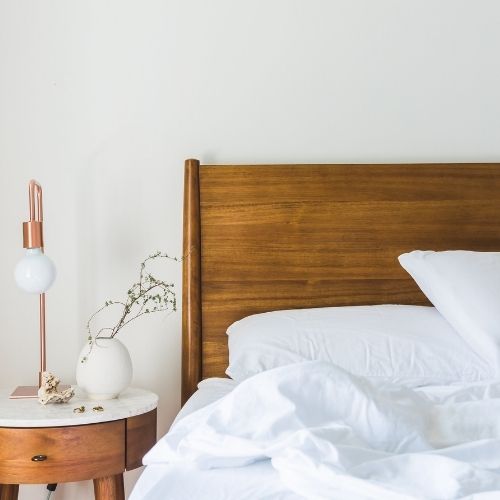
When it comes to getting a good night’s sleep, most people don’t realize that they may be sleeping on the wrong mattress. A mattress is a key factor in determining your ability to fall asleep and stay asleep throughout the night.
A mattress that is too firm or too soft can cause you to wake up with back pain and lead to an uneasy sleep. Having the right mattress for your body type and sleeping habits is essential to ensuring a good night’s rest.
If you find yourself tossing and turning throughout the night, it may be time for a new mattress. The following information will help you choose the right mattress for your needs.
The first step to picking the right mattress is to determine your preferred sleeping position. You can always try out different positions, but it’s best to start with your normal one. If you’re not sure what that is, ask someone who sleeps with you. Or spend a few nights sleeping on your stomach and your back to see which one feels most natural.
As for firmness, firmer mattresses are more supportive for back sleepers, while softer ones tend to be better suited for side sleepers. Stomach sleepers usually do just fine with the softer options.
The right mattress can be one of the most useful tips for getting better sleep for some people.
Read Before Bed
Before bedtime reading is a relaxing habit that can help you fall asleep faster, sleep more soundly and improve your overall health. Here are some tips to make your bedtime reading as effective as possible.
Many people who read before bed say it helps them relax, which is crucial for falling asleep easily. This is because focusing on one task, like reading, allows you to turn off your mind. Instead of thinking about the problems of the day or things that need to be done tomorrow.
The act of reading is also soothing. As you read, your eyes move back and forth over the page in a steady rhythm, similar to how they move when you’re dreaming. This may be why many people consider reading one of their favorite bedtime habits.
Reading can also be a distraction from worrying about insomnia or having trouble sleeping. If you find yourself worrying about falling asleep, you can start this relaxing activity right away instead of lying in bed worrying.
Get a Good Pillow
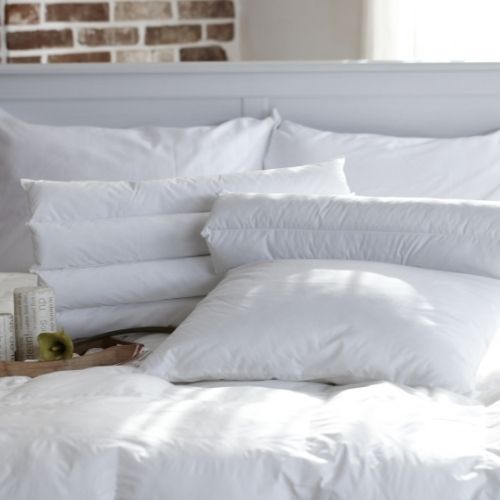
Pillows are very important to getting the right kind of sleep. This is because they support the head and neck, keeping them in an upright position. This reduces strain on the muscles and ligaments of the neck, so you don’t have to work as hard to keep your head up.
For some people, their current pillow is just too flat. As you lie on your back, there isn’t enough support under your neck, so your head ends up falling forward onto your chest. This can cause muscle strain, stiff necks, and sore shoulders.
A good pillow will help prevent these problems by providing the right amount of support for your head and neck. Selecting a new pillow can be difficult because there are so many types available. The first step to finding the right pillow is to determine what kind of sleeper you are:
Back sleeper – If you sleep on your back, you need a firm pillow that supports your neck without pushing it forward or down into an awkward position.
Side sleeper – Side sleepers need a medium-firm or firm pillow that’s wide enough to support their shoulders and hips without pushing them into the mattress.
Stomach sleeper – Stomach sleepers need a very soft pillow that conforms to their body.
Tackling Sleep Disorders for Restful Nights
Persistent sleep problems may be a sign of an underlying sleep disorder. Addressing these issues with a healthcare professional is crucial for improving your sleep quality.
Identify the Problem
If you experience recurring sleep disturbances, it’s essential to discuss your concerns with your doctor. Common sleep disorders, such as sleep apnea or restless leg syndrome, may be affecting your rest.
Seek Professional Help
Your doctor may recommend a sleep study or refer you to a sleep specialist for further evaluation. Proper diagnosis is the first step towards finding the right treatment and improving your sleep.
Follow the Treatment Plan
Once a sleep disorder is identified, it’s crucial to follow your healthcare provider’s recommended treatment plan. This may include lifestyle changes, medications, or the use of sleep aids.
By addressing any sleep disorders, you can pave the way for a more restful and rejuvenating night’s sleep, ultimately improving your overall health and well-being.
Embracing Better Sleep with CBT-I
If you’re struggling with insomnia, cognitive-behavioral therapy for insomnia (CBT-I) may be the solution you’ve been searching for. CBT-I is a proven therapy that helps individuals change their thoughts and behaviors related to sleep, resulting in healthier sleep habits. In this section, we’ll discuss the benefits of CBT-I and how it works.
Understanding CBT-I
CBT-I is a structured program that aims to:
- Identify and change thoughts and behaviors that contribute to sleep problems.
- Develop healthy sleep habits and routines.
- Promote relaxation and stress reduction.
Benefits of CBT-I
CBT-I has been shown to:
- Improve sleep quality and duration.
- Reduce the need for sleep medications.
- Enhance overall mental and physical well-being.
What to Expect from CBT-I
During CBT-I sessions, you can expect to:
- Learn about sleep and its importance.
- Identify negative thoughts and behaviors that may be causing sleep issues.
- Develop strategies to change these patterns and promote better sleep.
Finding a CBT-I Provider
To find a CBT-I therapist:
- Ask your healthcare provider for a referral.
- Search online for certified CBT-I therapists in your area.
- Check with local sleep centers or clinics for recommendations.
If you’re struggling with insomnia, consider trying cognitive-behavioral therapy for insomnia (CBT-I). This evidence-based therapy can help you change your attitudes and behaviors towards sleep, leading to improved sleep habits and better overall health. Reach out to a certified CBT-I provider today to start your journey towards better sleep.
Final Thoughts
When you don’t get enough sleep, your performance in everything suffers. That’s why it’s so important to aim for 8 hours of sleep a night.
Follow the tips in this article to boost your ability to fall asleep faster and sleep better. When your sleep improves, many aspects of your life improve. One of the most important things you can do is believe that you are capable of good sleep. It might take a little time, but you can do it.
Did you find this article on the best tips for getting better sleep useful? Please share using the buttons below.

